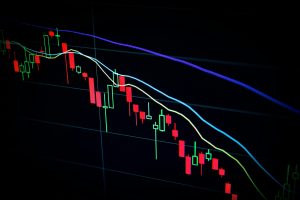
Finding the Right Online Trading Platform for Your Strategy
Selecting a trading platform plays a crucial role in determining your success as an investor. While most platforms offer similar basic functionalities, their differences in features, costs, and specialized tools can significantly impact your performance and overall experience.

Top 7 Factors in Platform Selection
-
Trading Style Compatibility
Your trading frequency and preferred assets should guide your platform choice. Day traders need advanced charting tools and rapid execution capabilities, while long-term investors might prioritize research resources and portfolio analysis features. Consider whether the platform specializes in stocks, forex, and cryptocurrencies, or offers a comprehensive multi-asset solution. Also, a great incentive to look for is a sign-up bonus.
-
Cost Structure
Understand the complete fee structure, including commission rates, spread markups, and hidden charges. Some platforms offer commission-free trading but compensate through wider spreads or payment for order flow. Calculate the total investing costs based on your expected trading volume and style.
-
Technology Infrastructure
Evaluate the platform’s execution speed, server reliability, and downtime history. Technical traders particularly need robust charting capabilities, customizable indicators, and automated investing support. Mobile trading capabilities become crucial if you need to monitor and adjust positions while away from your desk.
-
Educational Resources
Consider the quality and accessibility of educational materials, market analysis, and research tools. Newer traders benefit from comprehensive learning resources, while experienced traders might value advanced market analysis and professional research reports.
-
Security Measures
Verify the platform’s security protocols, including two-factor authentication, encryption standards, and fund protection measures. Research the regulatory compliance and insurance coverage that safeguards your invested capital.
-
Customer Support
Assess the availability and quality of customer service. Look for platforms offering 24/7 support through multiple channels, including phone, email, and live chat. Quick resolution of technical issues can prevent costly trading disruptions.
-
Account Requirements
Review minimum deposit requirements, account maintenance fees, and available account types. Some platforms offer different features and fee structures based on account size or trading volume. Ensure the platform’s requirements align with your investment capital.
Making Your Decision
Finding the ideal platform requires careful evaluation of your specific needs against available options. Begin by testing platforms through demo accounts to experience their interface and features firsthand. Consider starting with a smaller investment to validate the platform’s performance before committing substantial capital.
Prioritize options that align with your trading strategy while offering room for growth. The right solution should provide reliable execution, comprehensive tools for your chosen markets, and costs that maintain profitable investing opportunities. Remember that the most popular platform may not necessarily be the best fit for your unique approach.
Regular platform assessment remains important as your trading evolves and market conditions change. Many successful traders maintain accounts across multiple platforms to access specific features.
Calendar
| M | T | W | T | F | S | S |
|---|---|---|---|---|---|---|
| 1 | 2 | 3 | 4 | 5 | ||
| 6 | 7 | 8 | 9 | 10 | 11 | 12 |
| 13 | 14 | 15 | 16 | 17 | 18 | 19 |
| 20 | 21 | 22 | 23 | 24 | 25 | 26 |
| 27 | 28 | 29 | 30 | 31 | ||